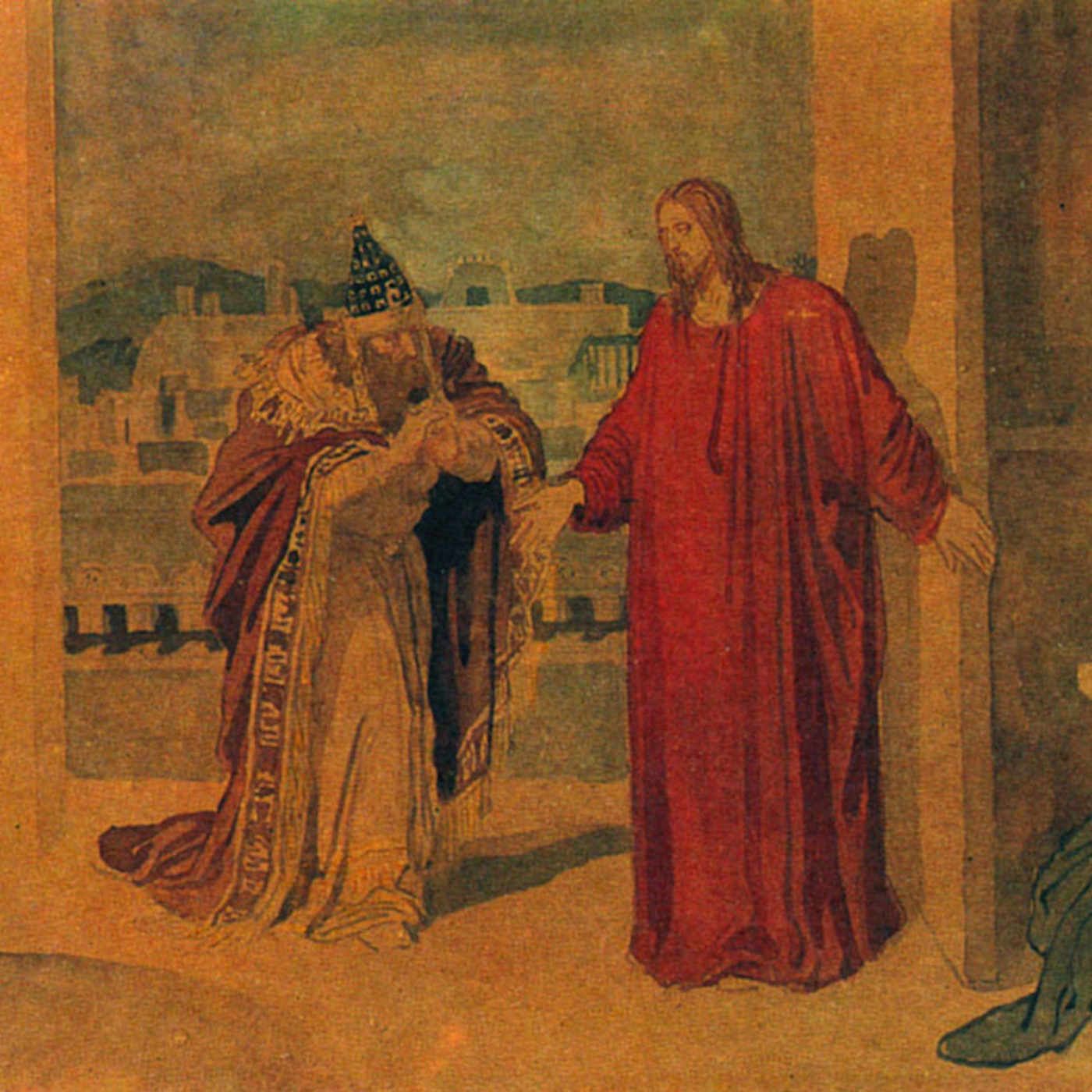Jesus said to Nicodemus: “Just as Moses lifted up the serpent in the desert, so must the Son of Man be lifted up, so that everyone who believes in him may have eternal life.” John 3:14–15
The line quoted above concludes a dialogue that Jesus had with Nicodemus, a Pharisee and a member of the Sanhedrin. This is the first of three times Nicodemus is mentioned in the Gospel of John. The second time he appears is when he reminds the other members of the Sanhedrin that a man must be first heard before he is condemned. The third time was when Jesus was killed and Nicodemus brought a mixture of myrrh and aloes to prepare Jesus’ body for burial.
Jesus was not accepted by most of the Pharisees and within the Sanhedrin. For that reason, Nicodemus was taking a risk by going to him at night to talk. But Jesus clearly senses faith in the heart of Nicodemus, which is why when Nicodemus asks Jesus about His teaching, Jesus answers him. Unlike the other Pharisees, Nicodemus was not trying to trap our Lord; he sincerely wanted to understand.
At the beginning of this dialogue between Jesus and Nicodemus, Nicodemus professes the beginning of faith in Jesus when he says, “Rabbi, we know that you are a teacher who has come from God, for no one can do these signs that you are doing unless God is with him” (John 3:2). Interestingly, Jesus then speaks to Nicodemus in figures of speech, saying that one can only enter the Kingdom of God when they are “born from above” and “born from water and the Spirit.” Nicodemus tries to understand but fails. Jesus then gently rebukes him by saying, “You are the teacher of Israel and you do not understand this?” (John 3:10). Jesus then goes on to speak further in symbolic language and figures of speech, concluding with the beginning of today’s Gospel quoted above when He speaks in a veiled way about His coming crucifixion.
One thing that is important to understand from this dialogue between Jesus and Nicodemus is that Jesus’ language is veiled in symbolic language because, even though Nicodemus was on the right path, he was not yet ready for the full revelation of the Gospel. He could not yet fully comprehend all that our Lord came to reveal. Thus, Jesus spoke in veiled language and invited Nicodemus to keep seeking its hidden meaning.
In our own lives, we can come to God and want Him to speak clearly and definitively to us, revealing His perfect will for our lives. But often He doesn’t. Why? Because God knows we are not yet ready for the full truth. When He speaks to us and when we gain insight in one way or another, this is good and reveals we are on the right path. But the Gospel, in its fullness, is so radical and so demanding that most people are not yet ready for the full truth. Therefore, in His compassion, God gives us only what we can handle at the moment. But this humble truth should encourage us, as it did Nicodemus, not to give up and to continue opening ourselves to the fullness of the Word of God.
Reflect, today, upon how open you are to the fullness of God’s Word. What would happen if God were to reveal to you, by an immediate personal revelation of divine knowledge, all that was in His sacred mind? Would it be too much for you to handle? Yes, it would be. But that humble admission is an important step toward that very goal. Humble yourself, today, more fully before the mysterious Word of God and pray that you will continue to be changed and open so that the clarity of God’s truth will more fully penetrate your soul.
My teaching Lord, Your sacred Truth is so deep, so profound and so transforming that it remains too much for me to fully comprehend and embrace. For that reason, I thank You for the mercy of speaking to me in veiled ways so as to continually draw me deeper in my faith and knowledge of You. Please continue to open my mind and heart to You so that, one day, I will understand Your Truth most fully. Jesus, I trust in You.Source of content: catholic-daily-reflections.comCopyright © 2024 My Catholic Life! Inc. All rights reserved. Used with permission via RSS feed.Featured images above: Jesus and Nikodim By Alexander Andreyevich Ivanov, via Wikipedia


